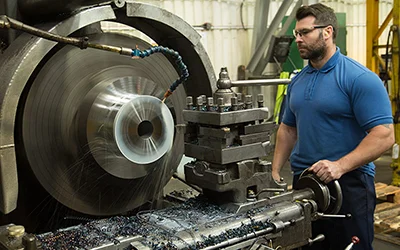Has the autumn brought a perfect storm to UK SMEs?
Updated: 10 November 2021
,Jonathan Andrew
The Office of National Statistics’ recent revision of the UK’s economic performance for 2020 – GDP shrank by 9.7% as opposed to 9.8% - means the depression of 1920-1921 will be remain the year of the UK’s biggest economic downturn in history. While this won’t improve anyone’s memory of 2020, this amendment to the record books will have provided policymakers with the crumb of comfort that the economy has ever so slightly less to make up in the years to come.
Indeed, mercifully, 2021 has been a different story.
Since the phased lifting of lockdown restrictions in the spring, the UK’s economic outlook has undoubtedly improved. The reopening of the hospitality industry, increased high street footfall and millions returning to work from furlough contributed to GDP increasing by 5.5 per cent in the second quarter of the year, a significant turnaround on the previous year.
Returning consumer confidence, undeniably boosted by a successful vaccination programme, has also reflected a renewed business optimism among the UK’s small and medium sized businesses.
More than three-quarters of the SME owners we spoke with in the summer said they were confident about the opportunities for their business in 2021, and the same proportion said they were planning to invest throughout the remainder of the year. Additionally, exactly half of UK construction SMEs saw an uplift in activity soon after restrictions lifted, according to our research in July.
With house prices continuing to rise, we could be forgiven for believing that the economy is back in business. However, with the changing of the seasons, we are perhaps also seeing a changing in sentiment.
A culmination of factors, some more familiar than others, are threatening to slow the UK’s long-term recovery, and SMEs stand to be worst hit.
Much of the Government’s fiscal and regulatory support for SMEs during the pandemic has come to an end. This included October’s phasing-out of restrictions on winding-up petitions, meaning that once again creditors can legally seek to liquidate those unable to pay debts. The Job Retention Scheme – known more affectionately as furlough – has also drawn to a close. According to data from the Resolution Foundation, almost 1 million employees were estimated to be on the scheme at the time it concluded.
While we’ve known for some time that central support will recede, SMEs aren’t out of the woods yet and the Government needs to keep a watchful eye on how these changes impact businesses.
The Treasury shouldn’t be afraid to roll-back or reintroduce support measures early to avoid the failure of thousands of SMEs as we make our way towards the winter months. It would be remiss not to consider labour and materials shortages of recent weeks and their impact on businesses throughout the UK.
Almost six in ten (58%) SMEs in the construction sector have warned that the increasing cost of raw materials is the biggest concern to their business, while 44% listed a shortage of skilled labour. This is no surprise as the UK has seen record increases in the price of steel, plastic and concrete, with plywood doubling in cost in just six months.
These concerns were compounded by the nationwide fuel rush, in addition to continuing concerns over the long-term future of small energy suppliers - in recent weeks Ofgem have had to transfer well over 2m customer accounts to surviving providers. Coupled with delays in SMEs across all sectors receiving goods, there’s widespread concern regarding the knock-on effect of rising fuel prices on both the distribution and construction industries.
Rishi Sunak’s recent Autumn Budget did provide an element of reassurance, however. Confirmation of an extra £1.6bn for the British Business Bank will go some way to help the business community access the most suitable forms of finance, and the extension of the Covid Recovery Loan Scheme will be welcomed by those businesses still grappling with certain Covid restrictions. More targeted support for certain sectors worst affected should not be ruled out to help them withstand another uncertain few months.
There are also signs that activity among SMEs is increasing. Our own SME Turnover Index continues to demonstrate a net upward trend since restrictions eased, with turnover at its second strongest month ever in September. It’s likely this rise is driven by seasonality partly by manufacturers and wholesalers gearing up for busy Christmas period ahead, but this proactive mindset is encouraging.
Notwithstanding some positive signs, SMEs continue to face challenges as we enter the winter months. It is those businesses who are addressing supply chain challenges head-on, and seeking out support from both the private and public sector which will be best placed to thrive.

